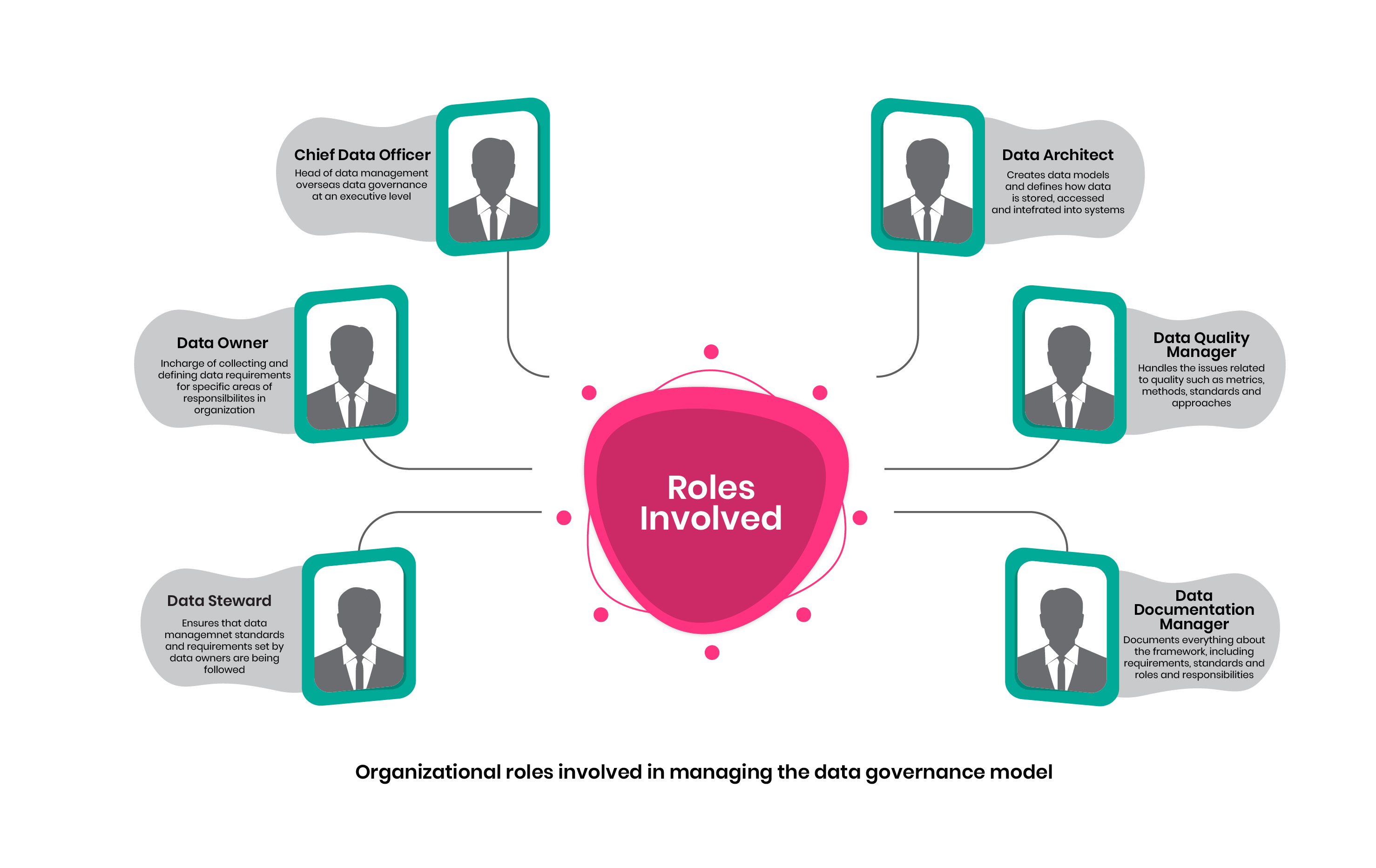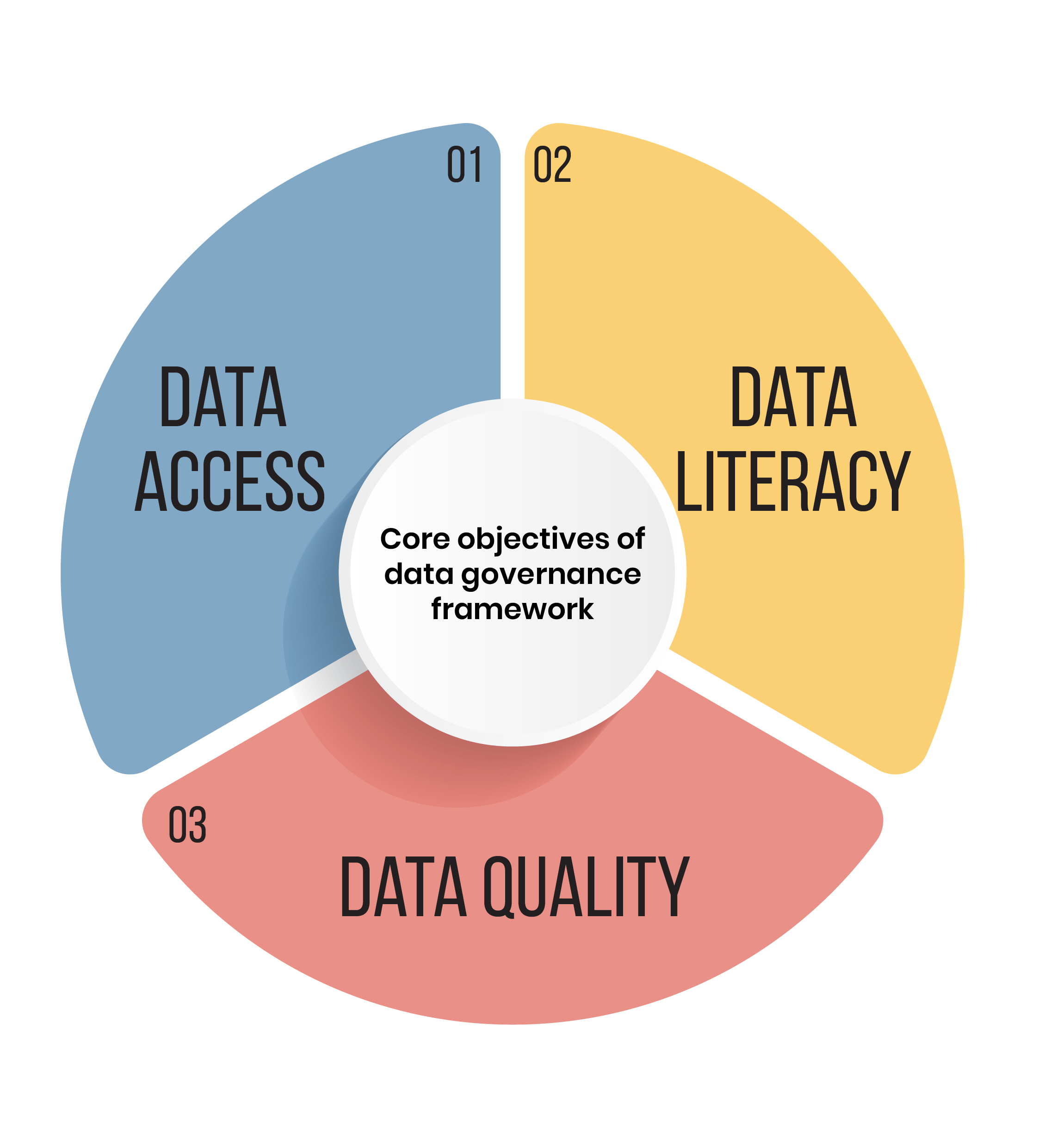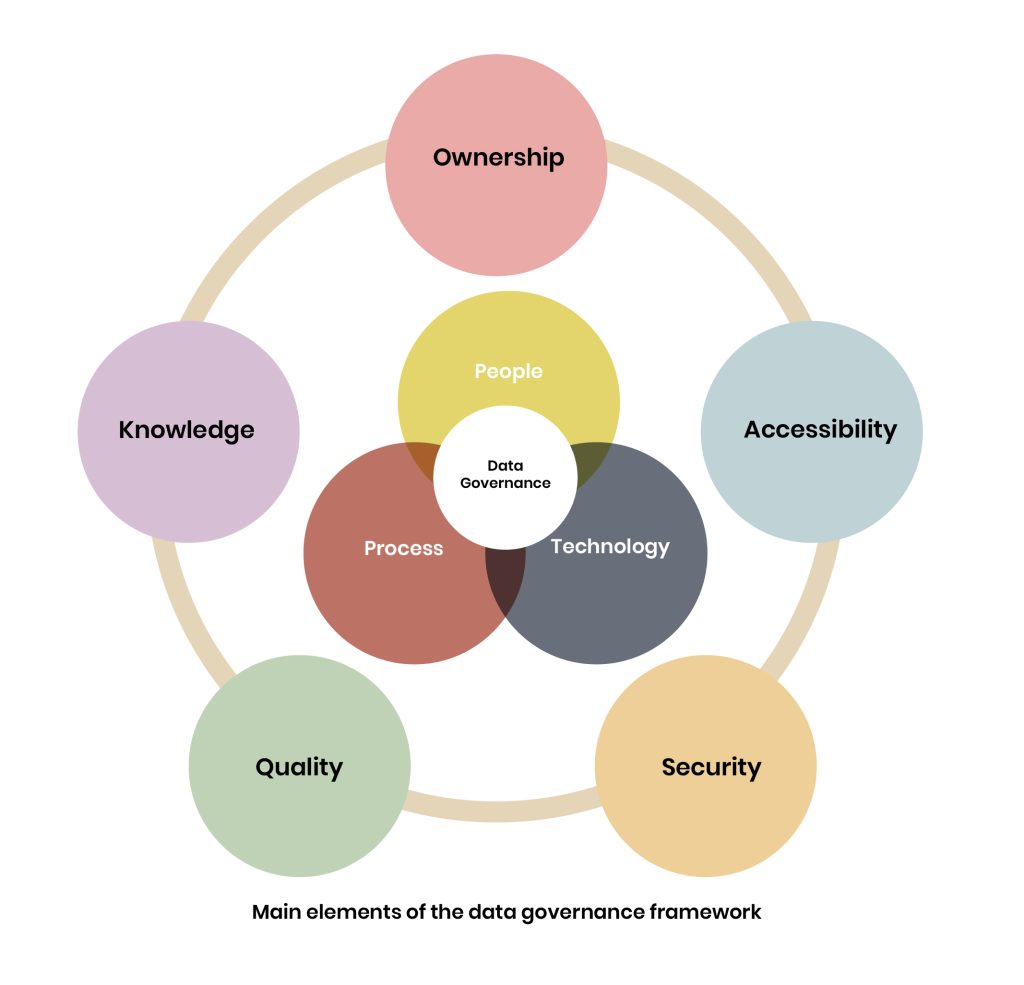How to achieve organizational success with Data Governance – A definitive guide
Written by: Eraj Mehmood & Ammar Afzal (Data & AI Competency)
June 30, 2022
Data is becoming the new fuel for strategic decision-making. However, achieving business value through an efficient data governance and management strategy can be challenging for many organizations.
Forward-looking organizations are heavily investing in data management solutions to enhance business visibility, reliability, security, and scalability.
This post is intended for entrepreneurs and small, medium, and large-scale business owners across different domains to analyze the critical importance of a robust data governance strategy.
Understanding data governance
Data governance is all about improving the quality, trustworthiness, and easy access to data in line with regularity compliance. An organization's right data governance framework ensures that the data is secured, trustworthy, documented, audited, and managed.

The framework of data governance can be described in three core objectives:
- Access covers entire organizational data so that the data is easily accessible, fully compliant, and discoverable.
- Since the framework is applied to entire organizations, data literacy programs should be implemented to continuously efforts translate data into valuable information.
- Data quality can be monitored and users can have access to properly cleansed data – increasing the trustworthiness of the data's life cycle.
Targets of data governance
Although there are no magic bullets, a good data governance strategy starts with a quality mindset, regular auditing, and data literacy programs are necessary to induct a reliable governance strategy. Here are some goals that can be deduced from a robust data governance architecture:
- Well understanding of data
- Breakdown of data silos within the organizations
- Implementation of compliance requirements accordingly
- Esurance of adequate accessibility of data without unnecessary delays
- Cost reduction and enhanced value of data assets
- Organized data results in a simplified data-cleansing process
Organizational Roles for a Successful Data Governance Strategy
A successful data governance strategy won't execute itself; it's time-consuming with a list of roles to be involved. An entire team is responsible for successfully executing the governance architecture.
Here are some critical roles responsible for creating and managing the data governance model:

The prevalent need to adhere to a data governance strategy
Outdated data governance architecture can also affect compliance with regularity standards like GDPR, HIPAA, CCPA, and SOX, which could have massive consequences for businesses.
Even now, for many, data governance might be an obstacle. But, once implemented and managed efficiently, a data governance strategy will accelerate business opportunities and empower data constituents.
To rise above your competitors, your organization should have access to accurate, well-informed, and complete datasets. However, without a robust data governance strategy, there is a substantial chance that your organization might face serious consequences when inconsistent, incomplete, and inconsistent data is in place. No matter an organization's size or scale, a resilient data governance strategy is necessary to modernize the entire organization.
According to research by Mordor Intelligence, in 2022, the data governance market was worth USD 1.81 billion and by 2026, it is projected to hit USD 5.28 billion.
Promising benefits of data governance for your organization
Here are some key benefits that a successful data governance program can bring to you:
Data security: One of the most defining goals of any data governance model is resilient security. That includes defining and verifying the data distribution policies and maintaining a solid vigilance against data attacks and compromises on sensitive data. Also, this will have a positive effect on business continuity too.
Better informed decision-making: Well-governed data is more accurate, discoverable, and relevant to finding valuable insights. Decisions based on the correct data bring accuracy and trust.
Enhanced data quality: Despite significant investment in technology, maintaining data quality remains a top concern for many enterprises. Improved data quality reduces operational errors and increases the analytical landscape.
Sustaining compliance: Significant regulatory compliance is necessary for industries like the health, security, and financial sectors. Failures might lead to multi-million-dollar settlements. With a proper data-governance strategy, the data is governed, shared, and distributed according to rules so that organizations can avoid fines & lawsuits.
Decreased cost: Data governance strategy drives organizations to become more data-driven, bringing them to the highest maturity level. Afterwards, reducing headcount via automation and process standardization will reduce technology-related costs.
Key elements of best-practice data governance framework

Ownership: To whom does the data belong? The source of the data is clearly defined
Accessibility: How easily the required data is available
Security: The data is safe and secure; no one can steal the data
Quality: The data must be accurate, complete, and capable of generating insights
Knowledge: Data latency programs are equally delivered. Everyone in the organization is ready for adoption. Data literacy programs are one of the most critical aspects of achieving delivery excellence in data governance.
Moreover, people, processes, and technology are building blocks for a robust data governance strategy.
Conclusion
The data governance framework you lay out today will guide your organization down the path of data quality and accessibility for users. However, for many, data governance might be tricky because of its extensive segment of an IT infrastructure, but the benefits outweigh any doubts owners could have about it.
Looking for top-tier data governance solutions? Find out more about Data Governance consulting at our Data Management & Analytics page. Learn how we can optimize the entire business process and how our services can give you a competitive edge.
Quick Link
You may like
How can we help you?
Are you ready to push boundaries and explore new frontiers of innovation?


